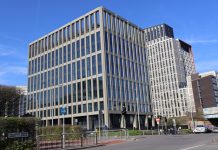The Association of Business Schools is pleased to announce the launch of its Policy Network. This is in response to a clear need, both from ABS members and Members of Parliament, business and other sector stakeholders for high level policy issues to be discussed, twinned with the need for business schools to be clearly defining and shaping the higher education agenda going forwards.
Universities and Science Minister David Willetts responded positively to this announcement, saying:
“UK business schools are undoubtedly an important part of the HE agenda. Collectively, they provide business and management education for over 250,000 students a year and business and management is the fastest growing subject. The HE landscape is changing and I congratulate business schools for getting together to look at how they can be more nimble, continue to deliver world class education and ensure that UK programmes are considered by all students as an attractive option.
“I welcome this move by the Association to crystallise current thinking and take policy matters forward in a positive and meaningful manner.”
.
Paul Marshall, Chief Executive of the ABS said:
“ABS represents 127 members, including all the traditional university schools and also the for-profit /not for profit independents – and we need to engage more with government policymaking. I don’t think the UK’s business schools are having the kind of impact on policy that they could or should have. There aren’t enough highly qualified, intelligent academics coming forward and assisting with policy, however this new network and series of events will certainly move us forward as a sector and give a voice to our members”
The network will start with a series of roundtable meetings which will be convened based around the four following themes:
The Challenges of Globalisation
The Challenge of Economic Regeneration
The Challenge of the Reformed Student Market Place; and
Sector Regulation.
Key experts will lead the debate by delivering ‘thought provoking’ presentations – one from a business school representative, one from a senior stakeholder from outside of the sector (such as the British Council and the National Union of Students who are confirmed speakers).
The sessions will draw from participants experience to engage current thinking and realise tangible outputs for the Association to take forward for publication and also at the three party conferences in the autumn.
Each session will be attended by roughly 20 participants drawn from within the business schools and with other key sector stakeholders (unions, Government, higher education institutions, mission groups, etc).
ABS would like to thank the following sponsors of the network:
UPP, University Business, Hobsons



















